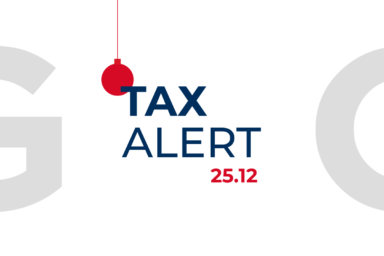Deadlines for foreign economic settlements and penalties for their violation: trends in court practice
Contents
Businesses often dispute the charging of penalties by tax authorities for violating the deadlines for settlements under export and import transactions. And during martial law, this is one of the most common types of tax disputes.
It is worth reminding that almost immediately after the introduction of martial law, a moratorium on documentary audits was introduced, which was gradually eased. Audits on the grounds of violation of the deadlines for settlements for export-import transactions were among the first to be allowed – back in May 2022, and audits on other grounds were allowed later. As a result, the issue of compliance with currency legislation has become one of the most studied in wartime court practice.
In addition, new nuances have now emerged in such cases that are directly related to the circumstances of martial law and the “martial” features of the legislation. In particular, violations of currency legislation may be committed as a result of force majeure due to active hostilities, occupation of Ukrainian settlements, etc.
In this article, we will consider the current approaches of the court practice to certain issues in cases of violation of payment deadlines.
The timing of foreign economic payments was not subject to suspension
The Tax Code suspended the time limits set by tax legislation and other legislation, the control over compliance with which is vested in the controlling authorities, with certain exceptions, until August 1, 2023. Since the State Tax Service is responsible for monitoring compliance with currency legislation, taxpayers tried to prove that the deadlines for settlements under export-import transactions were also suspended. This argumentation was used in a number of disputes, and therefore this issue was referred to the Judicial Chamber for Taxes, Fees and Other Mandatory Payments of the Administrative Court of Cassation within the Supreme Court.
In its ruling dated 23.07.2024 in case No. 240/25642/22, the Supreme Court concluded that the suspension of the time limits set forth in the Transitional Provisions of the Tax Code does not apply to the time limits for settlements for export and import transactions regulated by currency legislation.
Martial law is not a ground for exemption from liability
In the above-mentioned ruling of the Supreme Court, the taxpayer also referred to the general provisions on exemption from liability for violation of tax legislation. In particular, one of the grounds for such exemption is the commission of an act (action or inaction) by a person as a result of the introduction of martial law or a state of emergency.
In this regard, the Supreme Court stated that this provision does not apply to cases of violation of currency legislation, as they are not directly tax offenses.
In addition, the courts noted that the establishment of the resident’s guilt as a prerequisite for holding a person liable for violation of the deadlines for settlements under an import/export transaction is not provided for, and therefore it is sufficient to have the fact of violation of the relevant deadlines (Resolution of the Sixth Administrative Court of Appeal dated 29.02.2024 in case No. 620/14208/23).
Force majeure and foreign economic settlements
Foreign exchange legislation provides for suspension of payment terms under foreign economic contracts and accrual of penalties for the entire period of force majeure that results in suspension of contract performance.
However, regulatory authorities often do not take into account documents confirming the occurrence of force majeure for various reasons. In this context, the court practice has several important conclusions:
- the provisions of the currency legislation in no way determine the authority of the supervisory authority to assess the opinion of the Chamber of Commerce and Industry on the existence of force majeure, nor does it impose an obligation on a business entity to prove to the supervisory authority the existence of force majeure. In other words, the certificate of the Chamber of Commerce and Industry has been given prejudicial features, as this document is defined as sufficient evidence of the existence of force majeure in a particular case, which does not require the provision of additional evidence and documents during the inspection or when appealing its results (Resolution of the Supreme Court of 22.05.2024 in case No. 620/14203/23);
- a certificate of force majeure may be issued not only by the Ukrainian Chamber of Commerce and Industry, but also, in particular, by its authorized regional chamber of commerce and industry (Resolution of the Supreme Court of 11.09.2024 in case No. 520/21174/23);
- certificates of force majeure do not have to be provided prior to the inspection. Such documents may be provided after the audit at the stage of filing objections to the audit report or at the stage of appealing the tax notice-decision in an administrative procedure. The certificate may certify the existence of force majeure circumstances in the periods that occurred in the past (Resolution of the Supreme Court of 16.09.2024 in case No. 520/6236/23; Resolution of the Supreme Court of 04.07.2024 in case No. 380/8597/23).
Extension of settlement deadlines by decision of the Ministry of Economy
An important aspect of the deadlines for settling export-import transactions is that the deadlines set by the National Bank of Ukraine may be extended by a decision of the Ministry of Economy of Ukraine. At the same time, as practice shows, the relevant conclusions may be issued with violations of the deadlines due to the fault of the Ministry of Economy. The court practice (at the level of the appellate instance) tends to agree that in such situations the accrual of penalties is unlawful.
In particular, in its ruling of 25.01.2024 in case No. 120/6349/23, the Seventh Administrative Court of Appeal concluded that the conclusion of the Ministry of Economy, which was issued after the statutory deadline for settlements had been exceeded, retroactively exempts from liability in the form of payment of a penalty.
The courts also took into account the facts of the Ministry of Economy of Ukraine’s prolonged failure to provide conclusions with reference to the fact that during martial law the deadlines for the provision of administrative services may not be met (Resolution of the Eighth Administrative Court of Appeal of 03.04.2024 in case No. 260/5336/23), as well as the untimely receipt of a conclusion due to the unjustified refusal of the Ministry of Economy of Ukraine at the company’s initial request (Resolution of the Eighth Administrative Court of Appeal of 31.10.2023 in case No. 500/1839/23).
Conclusion
To summarize, businesses facing new challenges during the war often cannot prove their position during audits on compliance with the deadlines for foreign economic payments. Taxpayers have to defend their rights by challenging tax assessment notices in court. In general, the analysis of court practice shows that courts tend to take into account all the circumstances and decide in favor of canceling the accrued penalties. However, some of the new court opinions still reflect a fiscal approach. Therefore, an individual strategy should be developed in each specific situation.
If you need legal advice, please fill out the form below to request it.

Viktoriia Bublichenko
Partner, Head of Tax, Restructuring, Claims and Recoveries practice, Attorney at law
- Contacts
- 31/33 Kniaziv Ostrozkykh St, Zorianyi Business Center, Kyiv, Ukraine, 01010
- v.bublichenko@golaw.ua
- +38 044 581 1220
- Recognitions
- IFLR1000 2024
- IFLR1000 2024
- ITR World Tax 2025

Anna Sokur
Associate
- Contacts
- 31/33 Kniaziv Ostrozkykh St, Zorianyi Business Center, kyiv, Україна, 01001
- a.sokur@golaw.ua
- +38 044 581 1220
Get in touch
To get a consultation, please fill out the form below or call us right away:Sign up to be aware
New achievements are inspired by information. GO further, don’t miss out GOLAW news and legal alerts
Our expertise
-
- Antitrust and Competition
- Banking and Finance
- Compliance, Corporate Governance and Risk Management
- Corporate and M&A
- Criminal and White Collar Defence
- Defense in Anti-corruption procedures and regulations
- Labor and Employment
- Natural Resources and Environment
- Government Relations (GR)
- Insolvency and Corporate Recovery
- Intellectual property
- International trade
- Legal support of business and private Сlients in Germany
- Litigation and dispute resolution
- Private clients
- Real Estate and Construction
- Energy and Natural Resources
- Restructuring, Claims and Recoveries
- Martial Law
- Tax and Customs
-
- Agribusiness
- Aviation
- Chemical industry
- Engineering, Construction and Building Materials
- Natural Resources and Environment
- Financial institutions
- IT and AI
- Industry and manufacturing
- Healthcare industries, Life sciences and Pharmaceuticals
- Media, Entertainment, Sports and Gambling
- Retail, FMCG and E-Commerce
- Transport and Logistics
We use cookies to improve performance of our website and your user experience.
Cookies policy
Cookies settings







